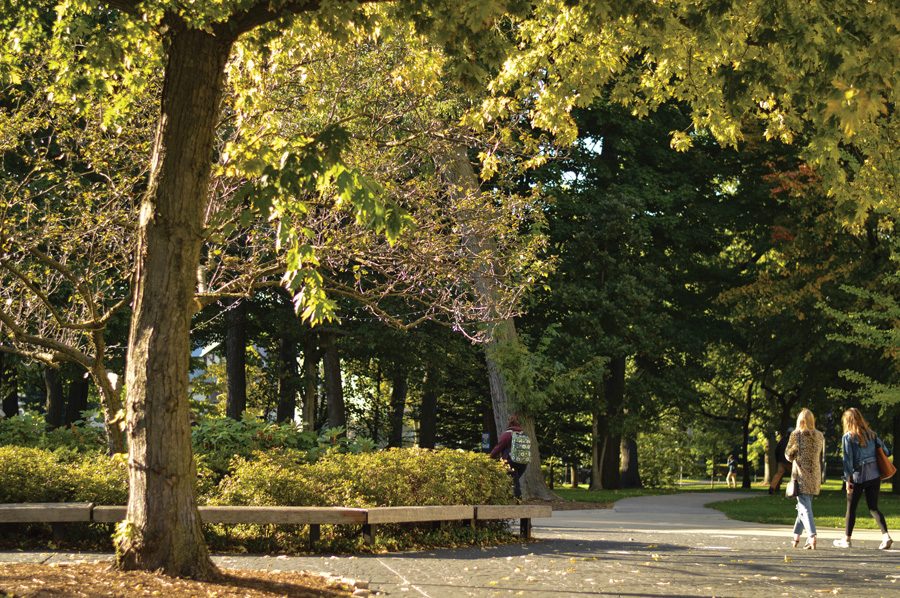COVID-19 budget cuts impact Evanston sustainability initiatives
Daily file photo by Allie Goulding
Northwestern’s Evanston campus. City officials and local environmentalists have had to re-evaluate sustainability initiatives because of COVID-19 financial constraints.
July 13, 2020
Budget cuts related to COVID-19 threaten some city sustainability initiatives and have led officials to reevaluate priorities regarding sustainability.
Kumar Jensen, Evanston’s chief sustainability and resiliency officer, said the pandemic has had a significant impact on the city budget, which, in turn, influences what the sustainability office can focus on in the future. As many residents have lost employment and are struggling to pay bills like utilities, Jensen said now is a good time to reevaluate energy policies.
Jensen said the city is now launching a new initiative called Evanston’s Energy Future, which will help determine priorities for residents and businesses around energy.
“In some of these energy agreements there’s an opportunity to provide assistance and potentially even some financial relief to residents who are struggling to meet some of these basic living expenses,” Jensen said.
When the pandemic started, the city shifted its immediate priorities toward protecting public health and away from sustainability. For example, in order to follow local and state health guidelines, customers at grocery stores can no longer bring their own reusable bags. Jensen said this shift has likely occurred on an individual level as well, as residents may not be focused on long-term climate solutions.
Jensen said the pandemic has likely tested residents’ ability to focus on issues like sustainability. He said this period has increased the need to take a more “human-centered” approach to climate change work.
Evanston environmental activists are also working to ensure intersectionality is part of their sustainability efforts. Rachel Rosner, the president of Citizens’ Greener Evanston, said the organization has used this time to “turn inward” and strategize about how to focus more on intersectionality when advocating for new policies.
Rosner explained that COVID-19 demonstrates how a lack of preparedness can cause much more significant impacts than necessary, which can act as an indicator of what the climate crisis can look like. She said the pandemic also shows how certain communities that are especially vulnerable to COVID-19 — like the elderly, low-income individuals and communities of color — are also going to be negatively affected by the climate crisis.
“The people who are most impacted are low-income and vulnerable populations like the elderly, as well as black and brown people,” Rosner said. “They’re taking the hit for COVID(-19) and the same is going to be true — and is increasingly going to be true — as we see more impacts of the climate crisis, including heatwaves, flooding and storms.”
Despite budgetary concerns, local environmentalists have started to look at how to maximize limited resources to achieve their goals. Wendy Pollock, co-chair of the Evanston Environment Board, said “creative thinking” is often necessary to determine how to achieve the same goals without the same kind of funding. This creative thinking also applies when considering how certain communities are impacted differently by climate change than others.
“It’s very, very clear that both the health and economic consequences of the pandemic and climate change are one and the same with social justice concerns,” Pollock said. “It’s not as if you can be concerned about the environment as some kind of add-on.”
Email: [email protected]
Twitter: @ryannperlstein
Related stories:
— Environment Board prioritizes CARP implementation at first meeting of 2020


